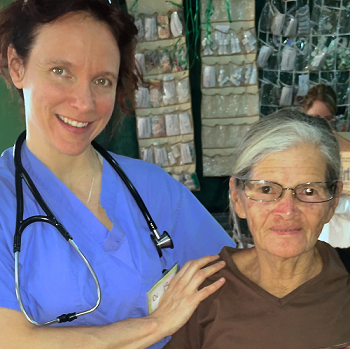
What Nursing Practices Result in Ideal Patient Care?
In nursing school, you learn how to deal with various ailments and situations. But there is a human element to the job that is difficult to learn in a classroom. How do you treat not just the condition, but also the person suffering from it?
Recognizing the humanity of a patient sounds fundamental and obvious, but it can easily be forgotten during the thrum of a busy week. In this article, we take a look at some practices that can result in ideal patient care.
Mentorship
Nursing mentorship relationships, formal or otherwise can have an enormously positive impact both on the patients and the employees. A newly minted nurse comes out of school with tons of book knowledge, but a relatively limited amount of experience.
Sure, you log your time working in hospitals, but it’s a different game when you’re doing things at the professional level. The pressure is higher. The threshold for bad outcomes increases, if only for the fact that you’re now the one in the driver’s seat. A good nursing mentor can help work through the pressure, ensuring that patients enjoy a higher level of care in the process.
Mentorship relationships can also help when it comes time to consider nurses for leadership positions. Older nurses who coach the new recruits can help management make decisions about who to spotlight and promote.
Hospitals wishing to encourage mentorship programs should consider instituting a formal mentorship program. Otherwise, young nurses can benefit from the experience of others by asking questions, and forming friendships.
Patient Empowerment
Patients are in an incredibly vulnerable position. At the very least, they find themselves in a situation where they don’t possess the knowledge they need to take care of themselves. Everyone in the room knows more about their health than they do. Depending on the situation, they may not even be able to handle toiletries with the same autonomy they used to.
Nurses can restore some of their autonomy by striving for as much patient empowerment as possible. Let them make choices wherever possible. Patiently explain everything that is going on clearly without sugarcoating the facts. Your job as a nurse isn’t to give them good news. It’s to help the patient see what is real, and respond to the situation in the way that is most comfortable for them.
Advocate for Them
Patient empowerment gives the patient a voice. Advocacy amplifies it. Nurses can advocate for their patients by following several steps:
-
- Listen: Find out what the patient wants, and look for ways to implement these preferences in every possible way. Sometimes these preferences will be care related. Other times, they might be cultural or religious. It won’t be possible to grant every request, but it’s important to be on the lookout for ways to make your patient’s desires realized.
- Articulate: If you’ve formed a close relationship with a patient, they may tell you things that they don’t share with other caregivers. Make sure everyone in the hospital is on the same page when it comes to meeting the patient’s requests. Fill doctors, other nurses, and even visitors in on what the patient wants.
Sometimes patient advocacy can get uncomfortable. It might mean butting heads with your coworkers. It could even mean turning family members away. Remember: your responsibilities as a nurse are to the patient. Be respectful of others, but don’t lose sight of your overall responsibility.
Put Yourself in Their Shoes
Sometimes the patient won’t communicate exactly what they want or need. When that happens, empathy can help inform your caregiving decisions. What would you want if you were in their shoes? Keep in mind that for many patients, being in the hospital is an entirely new experience. They won’t necessarily have the context to make informed decisions about what they want or prefer.
Nurses, on the other hand, spend most of their lives in the hospital (or so it feels, at any rate). They know more about the rhythms and intricacies of care and are therefore better equipped to make well-informed suggestions and recommendations.
Just remember that patient needs will evolve over time. Continuously get their feedback. By constantly thinking about ways to personalize and improve care, you ensure that the patient is always being seen as a human with unique wants and needs. That alone can have a big impact on their morale, and their overall health outcome.
With a Bachelor’s in Health Science along with an MBA, Sarah Daren has a wealth of knowledge within both the health and business sectors. Her expertise in scaling and identifying ways tech can improve the lives of others has led Sarah to be a consultant for a number of startup businesses, most prominently in the wellness industry, wearable technology and health education. She implements her health knowledge into every aspect of her life with a focus on making America a healthier and safer place for future generations to come.
Disclaimer: The viewpoint expressed in this article is the opinion of the author and is not necessarily the viewpoint of the owners or employees at Healthcare Staffing Innovations, LLC.
